Go for a day when no ‘外人”Gaijin’ in Japan The minute magazine BONDING will be published in late April Digital media also launched
Koki Harada
- 28/03/2023
Life in Japan

In late April 2023, the minute-magazine BONDING will be published, and in early May an extended version, the digital media BONDING MEDIA, will be launched. The number of foreigners living in Japan will continue to increase, and the Japanese people who host them. The aim of the project is to convey the philosophy of “Bringing hearts together, connecting and enjoying life”, as advocated by Bonding Japan Ltd. who support all people to live comfortably together. I, Koki Harada, a sports writer, will take the lead in organising a team to edit, publish and manage the project, and after living in the UK for 20 years, I returned home to a sense of stagnation and the COVID-19 pandemic, which led to the launch of these two owned media.
SOS from Alex
The bullet train at midnight was running nimbly towards Tokyo. The train was practically deserted and its body seemed light, as it was again the peak of the COVID-19 pandemic. I thought to myself, “The bullet train must be easy”, it’s like a kid and smiled to myself. It was a message from my best friend’s son Alex (pseudonym), who lives in the UK. “Hi Koki, I hope you are well…” began the common sentence, it was a long, and unexpected message.
His father hadn’t registered his birth
Alex was born to a Japanese father and a British mother, what is called “Half” in Japan, he is working in Japan after graduating from a top-level university in the UK. He was considering starting his own business and wondered how he could continue to live in Japan after leaving his current company. Alex had been researching the requirements for obtaining a visa, but had hit a dead end. This is because it is relatively easy to obtain a Japanese visa if either the father or mother is Japanese, but in Alex’s case this was not the case. The reason was that when Alex was born, his father had not registered his birth in Japan.
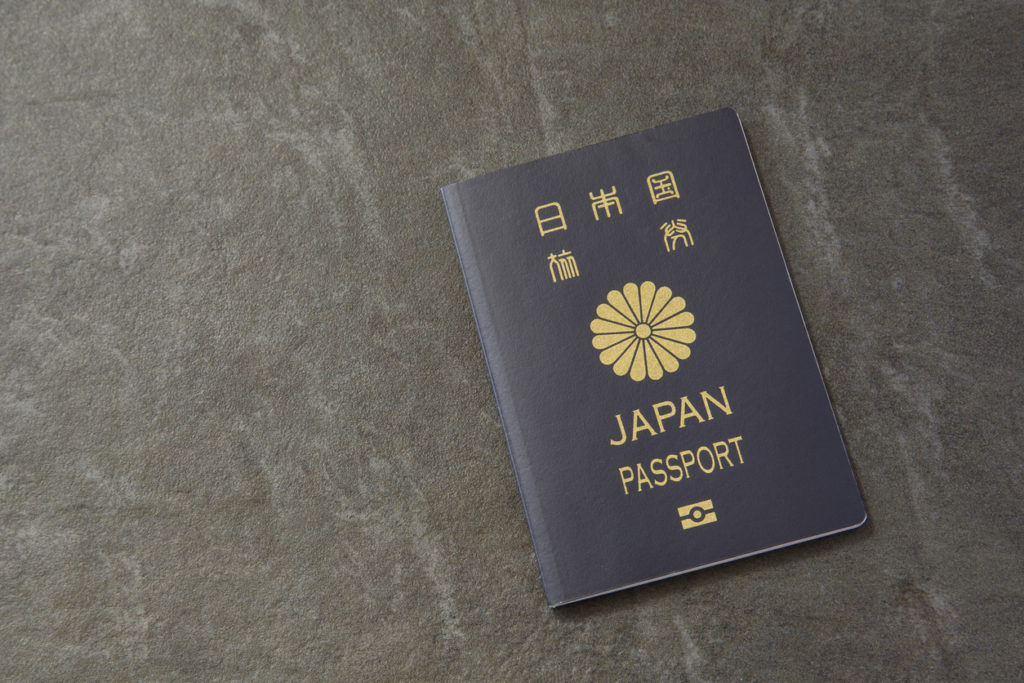
Calling in Japanese instead
Life is different. I have known Alex since he was a child, but I thought he had a double passport and had chosen British citizenship as an adult. Like many half-breeds… The next day, I phoned his father, who is a good friend, and he told me what had happened. In Alex’s case, he decided to raise Alex as a British citizen from birth. That is why he did not submit the birth certificate to the Japanese embassy in the UK.
Is there any remedy? We called the relevant authorities, including administrative scriveners, the immigration bureau and the city hall where the father’s family register is located. Alex is able to speak Japanese to some extent and can ask questions, but it is difficult for him to listen. The level of difficulty is particularly high when it comes to specialised visa-related language. When I messaged Alex with details of the rules and some measures to be taken, he was very happy.
A phone call in English was difficult
I have had some experience with this. As a sportswriter, I lived in the UK for almost 20 years, from 1999 to 2019. For the first 10 years or so, making phone calls in English was a pain. Even though I could communicate what I wanted to say in English, it was difficult to hear what I wanted to say. I could only ask “Sorry?” or “Pardon?” two or three times. When it is important, I persistently ask back, but there are countless times when the person on the other end of the line sighs and I flinch.
I have no idea how difficult it is to make a phone call in a language that is not my mother tongue, to complete a procedure, or to get valid information out of someone. How helpful it would be to have someone, if not an interpreter, who can understand your intentions and make the call for you. I know how much it would mean to me.
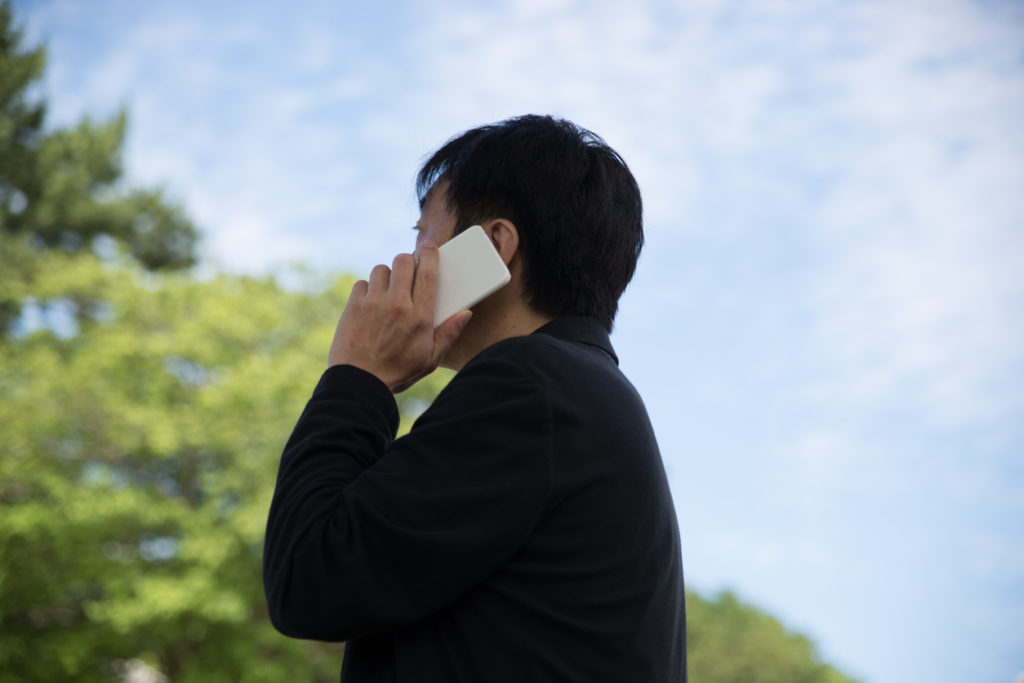
Support with applications for COVID-19 compensation
It wasn’t just the phone calls. At the height of the COVID-19 pandemic, a Myanmarese Technical Intern Trainees, Naing (pseudonym), who works as a cleaning staff member at a hotel, contacted us to ask for help in preparing her application for compensation for absence from work. As it turned out, the Corona disaster began shortly after she arrived in Japan, and the number of hotel users plummeted. They were forced to take time off work and shorten their working hours, but the company refused to help Ms Nain and her colleagues apply for compensation for absence from work. They were forced to apply on their own, but did not know how to fill in the form.
Filling in documents in Japanese is also a hurdle
In Japan, documents submitted to government offices, hospitals and post offices must be written in Japanese according to the form. This is another hurdle for foreigners. First of all, the documents themselves are not in easy Japanese “Yasa Nichi” with ruby characters, so they do not even know what to write in them. It would be helpful if there was at least a bilingual English translation or sample, but I have not seen many such documents.
Some people think that since this is Japan, it is natural to write documents in Japanese. However, I think it would be good to be a little more accommodating to people whose first language is not Japanese.
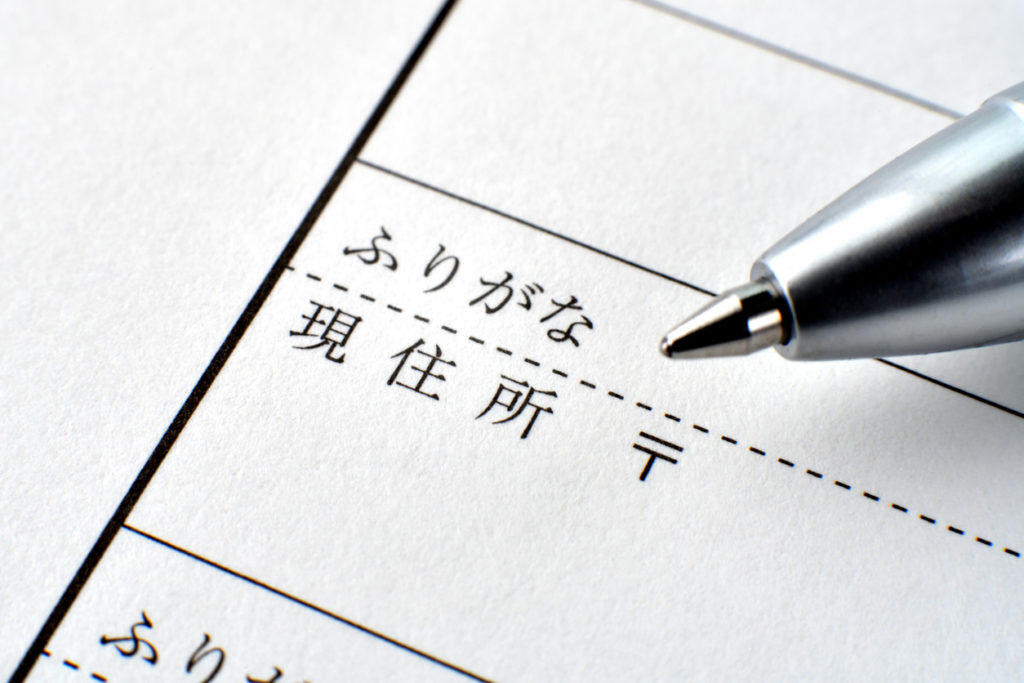
Difficult paperwork even for writers
I downloaded the application form, but it was difficult even for a Japanese person to understand it. The forms are ‘standardised’, as is common in Japanese bureaucracy, and there is no space to write exceptions or explanations of them. I called a special enquiry desk to ask how to fill in the form, but the operator’s explanation was again difficult to understand. They say ‘that’s fine’, even though it is clearly contradictory.
Even I, who have been writing for a living for many years, couldn’t understand it, so it was quite a hurdle for many foreigners. After that, I made several more enquiry calls, got the general hang of it and helped Ms Nain with gathering the necessary documents and writing the application form. Later, in the same way, we also supported Nain’s colleagues in preparing their applications. A few months later, each of them contacted me to say that the support money had been transferred. Although it was someone else’s problem, I felt a sense of achievement as if it were my own.
Technical Intern Trainees don't eat Japanese food or travel
After that, I began to receive inquiries from other foreigners who were in need of help. To the extent possible, I give them advice by phone or message. Some of the consultations are serious, such as about salaries, real estate rentals and the unfairness of employers and supervisory bodies, but the most common concerns are visa-related issues.
As we consult with them, we have come to understand some things. Many foreigners are working and earning a salary without a clear goal in mind. Many of them have cut down their lives, don’t eat Japanese food and don’t travel because of the debt they have incurred to come to Japan and to support their families in their home countries. They always speak their own language with other foreigners, so they have no Japanese friends and their Japanese language skills do not improve.
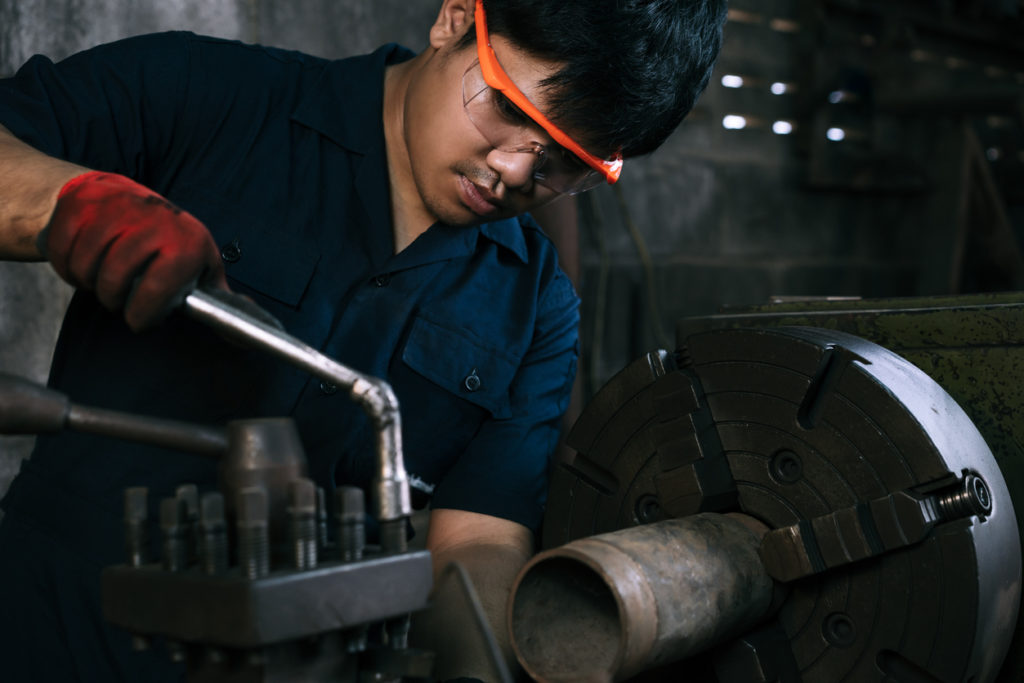
Why tomorrow’s salary is more important than the future
The majority of Technical Intern Trainees from Asian countries are like this. Although some of them return home after completing the maximum five-year Technical Intern Trainees, many of them wish to continue working in Japan somehow. Therefore, from the moment they arrive in Japan, I ask them, “Where will you be in five or ten years’ time, and what will you be doing? What kind of work do you want to do and how much money do you want to earn? Please start thinking about that now.
But many people look at me and say, “What on earth are you talking about?” Many people look at me like, “What on earth are you talking about? They are more interested in tomorrow’s or next month’s salary than in the future. They are happy to work overtime, work as hard as they can and focus on earning the maximum salary they can.
Many Japanese employers and supervisory bodies take advantage of this short-sightedness and consider foreign personnel as mere labour. This negative cycle is now taking place in many parts of the country.
Be aware of career development
Why don’t they think about their own future? Many of the Technical Intern Trainees from Asian countries come from poor families in rural areas. In general, they are serious and nice, but they are laid-back and few want to work hard and grow. Probably few of them have thought seriously about their career development since their school days in their home country and have done something about it.
This is partly due to the social structure in their home countries, which makes it difficult to be rewarded even if they work hard. Therefore, many of them do not know of any successful experiences where they have made an effort and it has paid off. In the first place, few people have any idea how to improve their careers, let alone how to do so. The thought process is different from that of young people in Japan and other developed countries.
Many would not want to be working in the same position and for the same salary five years from now. To achieve this, they may want to pass a Japanese language test one level higher, acquire qualifications, or develop specialised skills. If you decide on the career path you want to take, you will naturally have a clear idea of what you need to do now. I tell them that if they want to improve their career, change jobs or increase their salary, it is important to find the time to study.
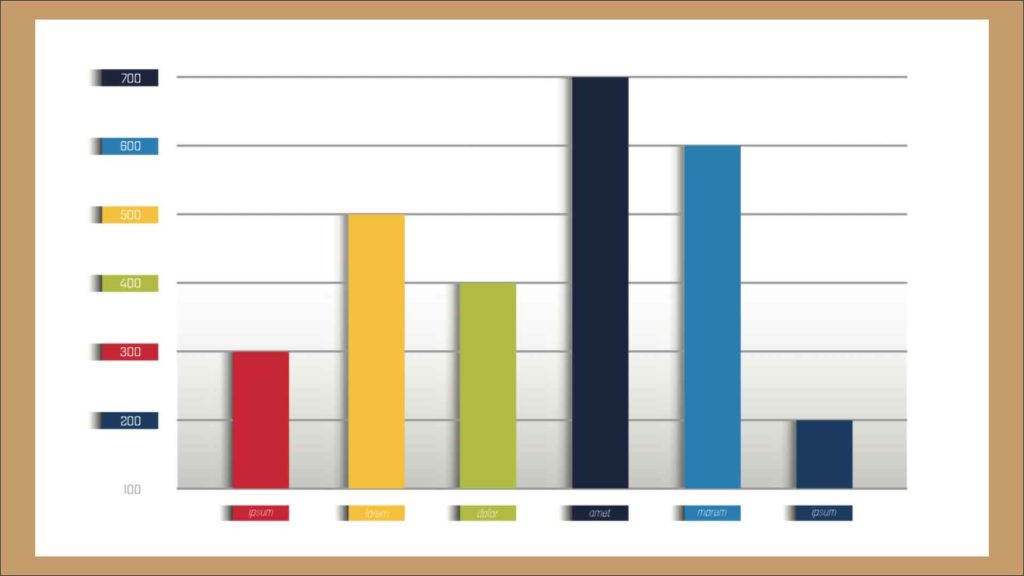
Japanese people also need to change their mindset
The Government of Japan is currently implementing various policies under the banner of ‘realising a society in which foreign residents can live together’. Local governments are also making efforts, and compared to the past, the “hard” aspects, such as systems, have been improved a little. However, as mentioned above, there are high hurdles for foreigners to overcome in order to work and live in Japan. Japan remains a country that is not friendly to foreigners.
The soft side, our preparedness, is also not at all in place. When you see foreigners working in convenience stores, restaurants, hotels and factories, do you see them as migrant workers who came to Japan on their own? As hosts, don’t we need to make an effort to make them like Japan and be prepared to help them if they have any problems?
The reality is that Japan has to rely on foreigners to supplement its workforce in order to maintain its society, which has a declining birthrate, an accelerating aging population and an ever-declining population. I think it is necessary for Japanese society as a whole to change its mindset and create a more welcoming and supportive mood towards foreigners.
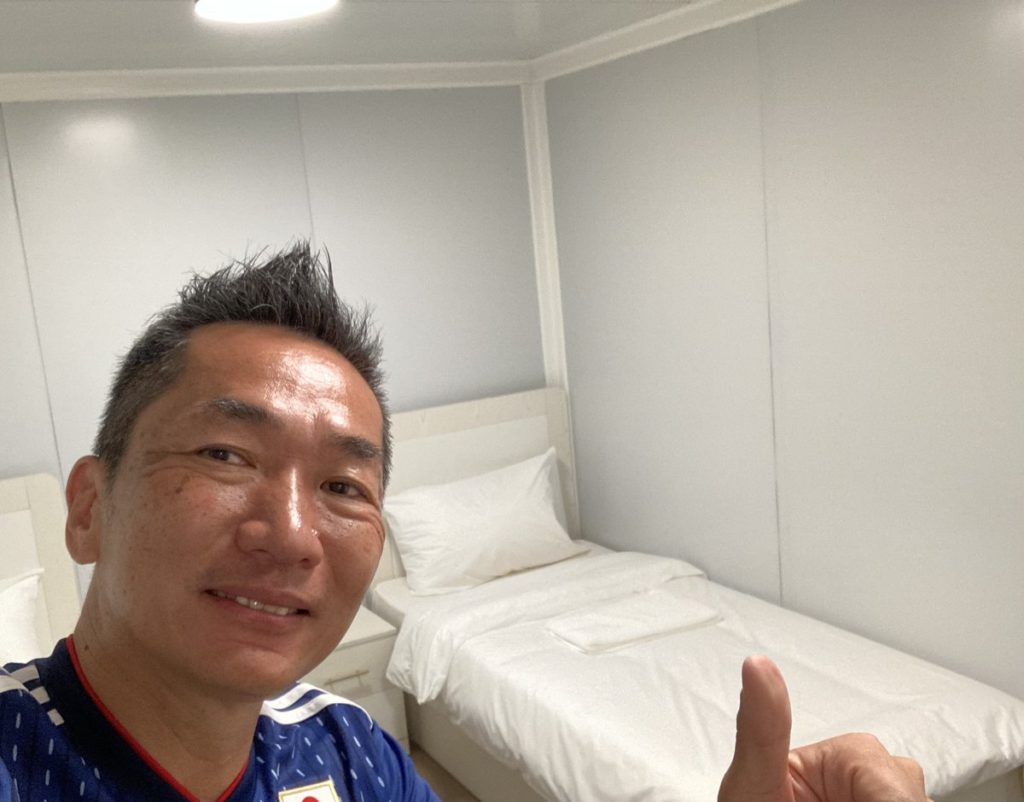
What I want to convey in the two owned media
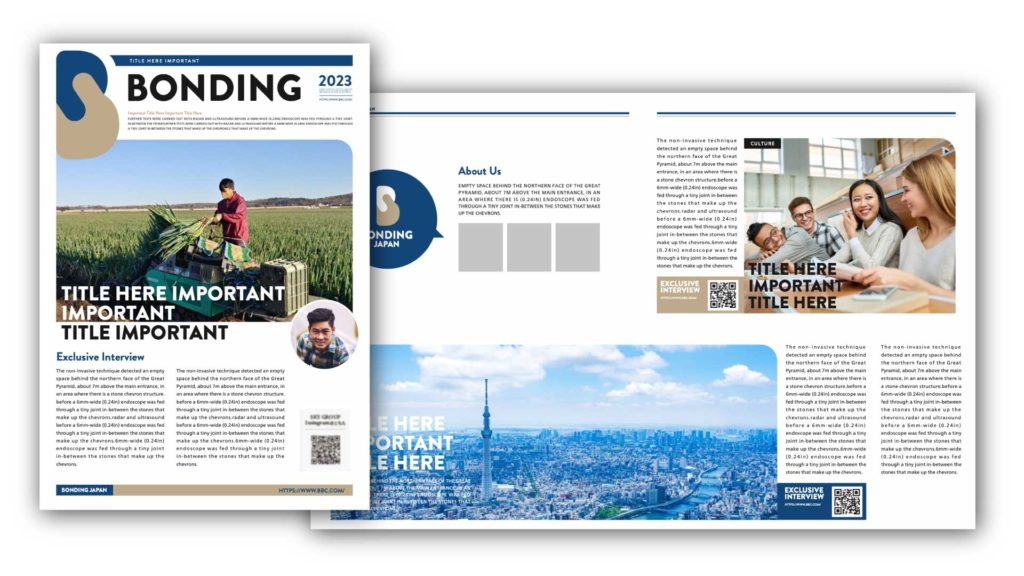
BONDING, which will be published at the end of April, is an A4-size, eight-page free mini-magazine reporting on events and people related to foreigners in Japan through articles, columns and photographs. We intend to convey unique topics and perspectives that are not reported by the major media. This is a one-off project funded by a small business sustainability grant, but if possible we would like to publish it on a regular basis in the future.
Furthermore, topics that could not be published in this mini-magazine will be published in the digital media BONDING MEDIA, which will be launched in early May, with articles, columns and photos, as well as videos.
BONDING means ‘link with someone based on shared feelings’, ‘connecting’ and ‘glue’. We hope that through these two media, Japanese and foreigners will be able to connect, discuss and think about various issues together. We believe that by doing so, “Connecting” will be created and “Bonding” will spread further.
